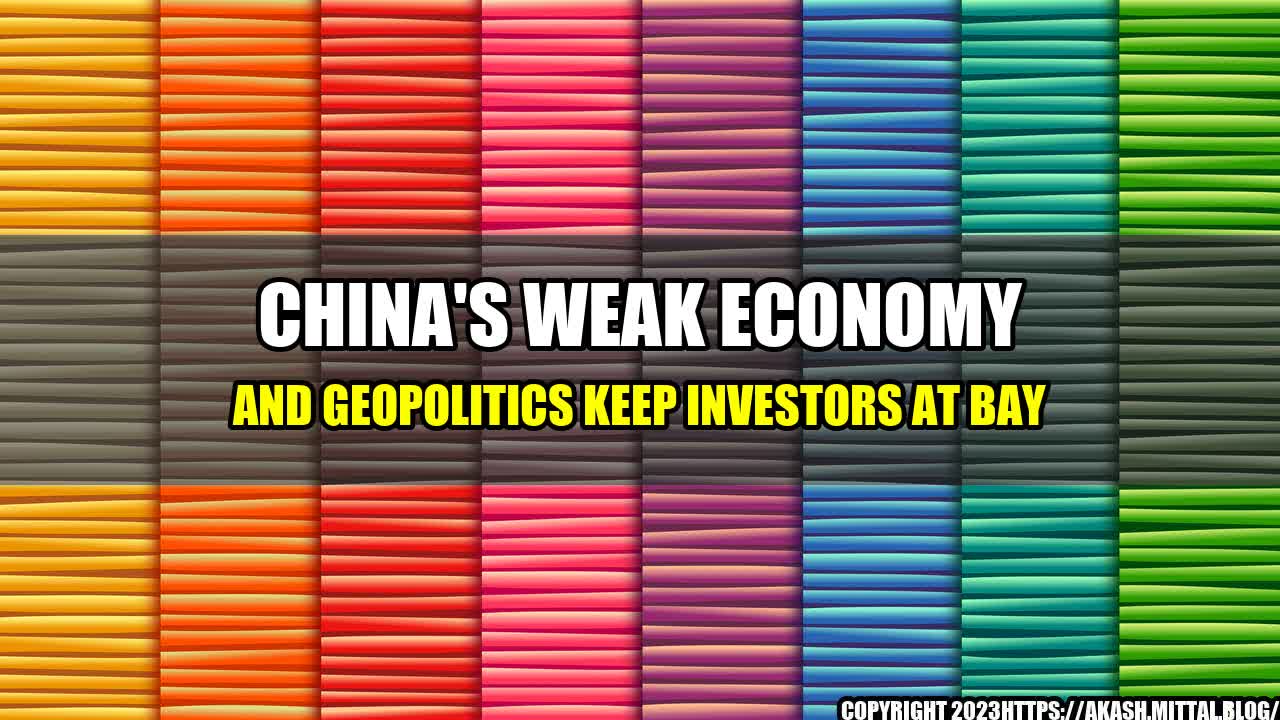
James Roberts was a savvy investor. He had earned a fortune on Wall Street by predicting market trends and making smart investments. But when he heard about China's weak economy and geopolitical tensions, he started to feel uneasy.
Roberts had always been bullish on China. He saw it as a land of opportunity, a vast market with a growing middle class hungry for Western goods and services. But now he was hearing reports of slowing growth, high debt levels, and a looming property bubble.
He decided to do some research and what he found was alarming. China's debt-to-GDP ratio had soared from 150% to 300% in less than a decade. Local governments were borrowing money to finance massive infrastructure projects that had little economic justification. The country's stock market had been in freefall, losing more than 30% of its value in just a few months.
But it wasn't just China's economic problems that were worrying investors like Roberts. There was also the geopolitical factor to consider.
China's aggressive expansionist policies had set it on a collision course with the US and its allies in Asia. Its territorial disputes with Japan, the Philippines, and Vietnam had led to tense standoffs and naval buildups in the South China Sea. And its massive Belt and Road Initiative was seen as a tool to extend its influence and power across the globe, at the expense of the US-led liberal international order.
All of this was creating uncertainty and risk for investors. They feared that a conflict between China and the US or its allies could destabilize the global economy and trigger a new financial crisis.
The result of all this worry and uncertainty has been a flight of capital from emerging markets, including China. According to the Institute of International Finance, investors pulled $26.7 billion from emerging market funds in August 2021, the largest outflows since March 2020.
China's stock market has been hit particularly hard, with the Shanghai Composite Index losing more than 8% since the beginning of August. The country's real estate sector, which accounts for about 28% of its economy, has also been under pressure, with sales and prices falling in many cities.
But it's not just China that's feeling the pain. Other emerging markets, such as Brazil, India, and South Africa, have also been hit by outflows and falling stock prices.
So what can investors do in the face of all this uncertainty and risk? Here are three things to keep in mind:
Investing in today's global markets is not for the faint of heart. But with careful planning and a level head, it's still possible to make sound investments and achieve your financial goals.
#ChinaEconomy #Geopolitics #Investors #EmergingMarkets #StockMarket #GlobalMarkets #FinancialCrisis #BeltandRoadInitiative #Debt #USChina #Asia #MarketFluctuations #Diversification #SafeHavenAssets #FinancialGoals #LongTermInvesting #FinancialAdvisor #MarketTrends #InvestingTips Category: Business
Curated by Team Akash.Mittal.Blog
Share on Twitter Share on LinkedIn